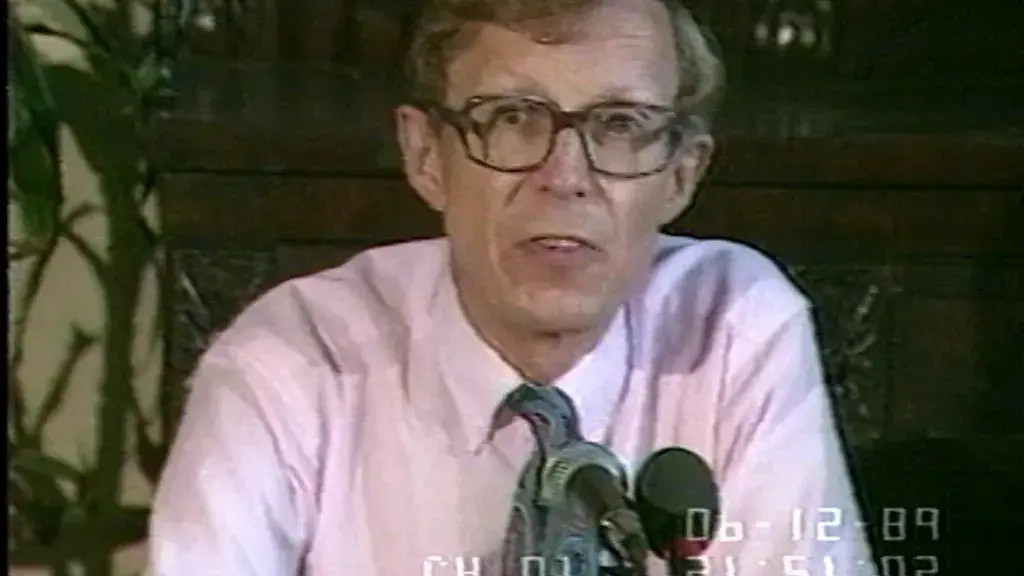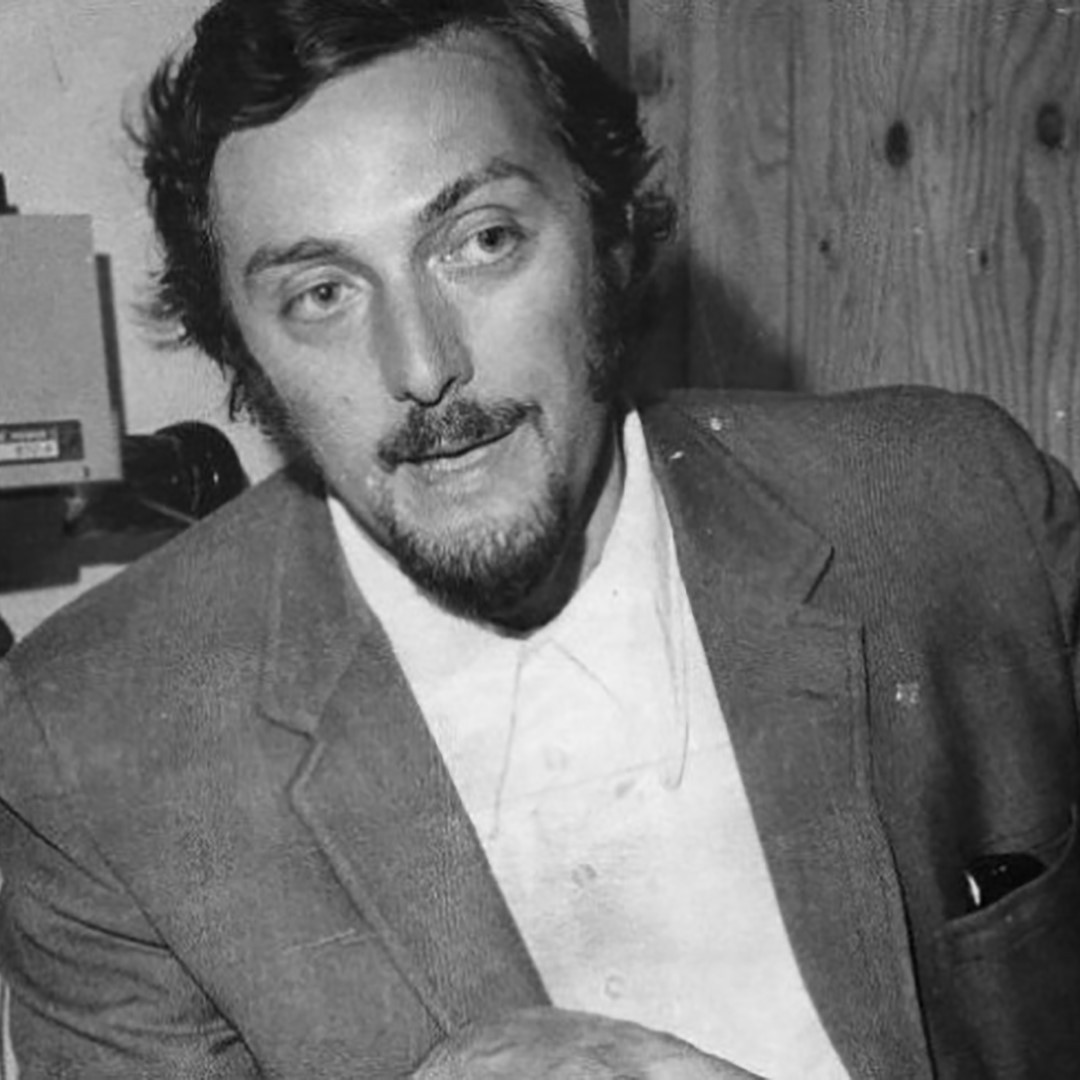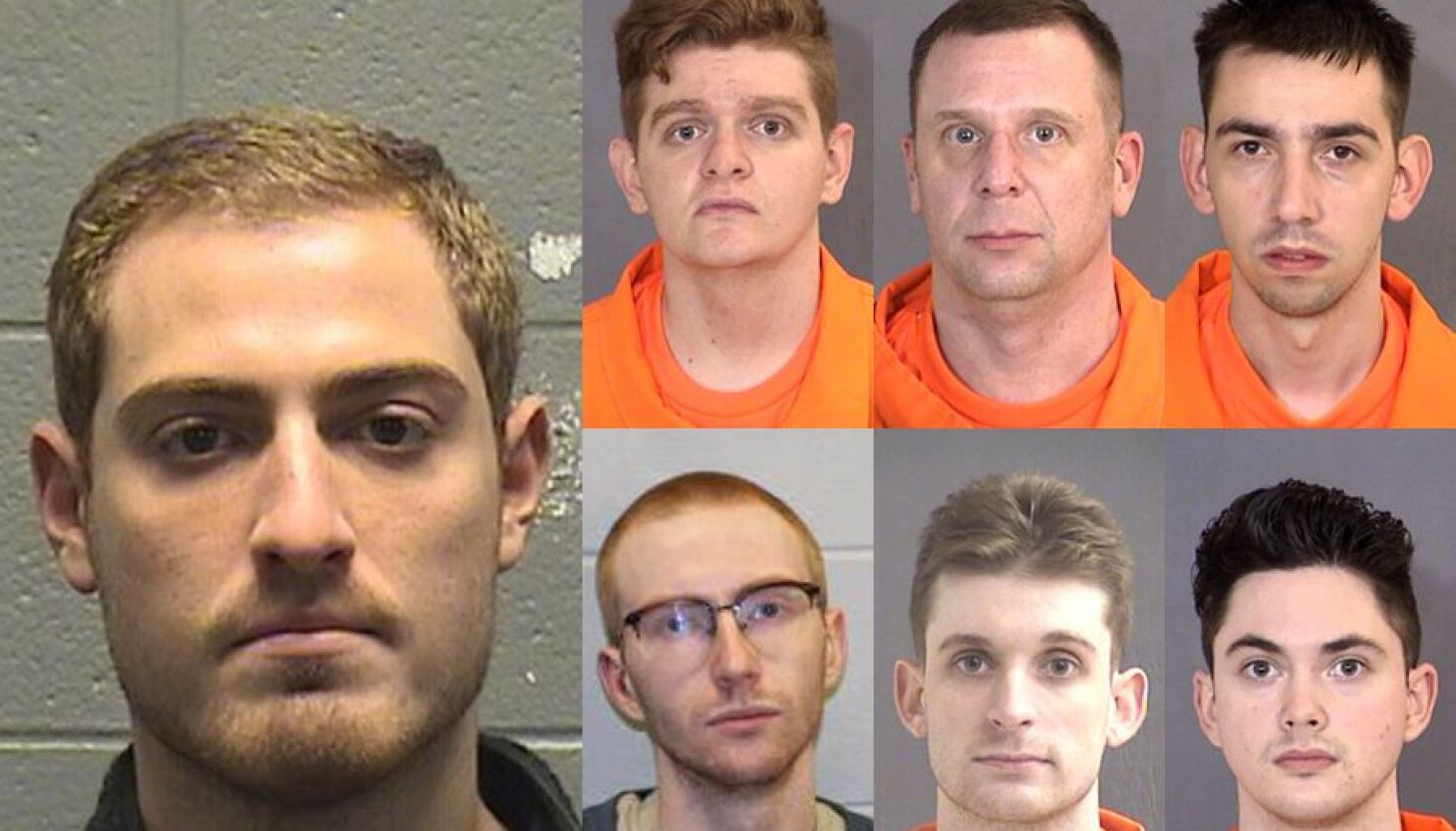A renowned exiled Russian political analyst reminisces about the contribution of the recently deceased UK scholar and human rights campaigner, Peter Reddaway.
Dear Bohdan Nahaylo!
Thank you so much for your very thorough and moving “In Memoriam” devoted to our outstanding contemporary Peter Reddaway who passed away several weeks ago. He was both a scholar and a visionary.
Follow our coverage of the war on the @Kyivpost_official.
I would like to share some previously unrevealed details regarding the considerable political and spiritual impact he had on events which transpired in the post-Soviet space during the critical years of 1989-1991.
All Soviet dissidents, as well as many of our friends in the West, were of course familiar with Andrei Amalric’s brilliant essay “Will the Soviet Union Survive until 1984?” (1970). All of us knew his famous verdict by heart:
“Just as the adoption of Christianity prolonged the existence of the Roman Empire for 300 years, so the adoption of communism extended the existence of the Russian empire for several decades.”
In 1989, as Amalric’s prophetic words became a reality before our very eyes, I came across a Peter Reddaway article analyzing this dramatic process. I was particularly impressed by one of his Amalric-esque observations on the nature of the Soviet empire.
“The Soviet incarnation of the Russian Empire,” argued Reddaway, “is radically different from the British or French empires. Its metropole is not Russia like France and Britain in case of their empires. It is (according to Amalric) an ideocratic quasi-religious empire and its metropole does not have a territorial nature. Its metropole are ideological institutions and security agencies imposed on every nation of the USSR, including Russia.
At that time, (1989-1911) I happened to be a kind of informal adviser to Boris Yeltsin. I organized his visit to Tbilisi after the April 9, 1989, massacre (the first attempt by the imperial metropole to crush the national aspirations of a Soviet republic by force).
On returning to Moscow, Yeltsin delivered one of his best speeches at the “Congress of People’s Deputies of the USSR,” where he blamed Gorbachev and his imperial entourage directly: “I was there, I saw it with my own eyes. It was a crime. A crime committed by the Soviet state against its own people.”
The Amalric and Reddaway ideas that I shared with Boris Nikolaevich were wholeheartedly accepted by him. But that’s not all – he was inspired to mold a very organic and creative (and, as it turned out, hugely successful) model of political self-presentation.
From the spring of 1989, Yeltsin began positioning himself as a national leader, a rebel striving for the independence of his country – Russia – from the USSR, an old and decrepit ideocratic communist empire. From this political perspective, all the leaders of the national liberation movements in Ukraine, Georgia, and the Baltic Republics were in essence becoming his brothers-in-arms.
In 1990 and 1991, imperial proponents attempted to stop the dissolution of the Soviet empire by force. Each time that happened, Boris Yeltsin, as President of the Russian Federation (elected in June 1990), used his considerable political clout to thwart them.
One of the more dramatic events along these lines transpired in January 1991when the KGB seized the Lithuanian TV Center (13 people died). The President of the Russian Federation immediately rushed to Vilnius, then to Tallinn, finally to Riga. There he co-signed, along with the leaders of all three Baltic Republics, treaties on the mutual recognition of each republic’s independence. His actions were then supported in Moscow by the largest ever (approximately one million participants) anti-communist, anti-imperial demonstration for Lithuanian independence.
The Peter Reddaway idea of mother-Russia rebelling against the Soviet empire alongside other republics was able to unify Russian society. The concept appealed both to the Eurocentric aspirations of liberals as well as to the patriotic feelings of those with a nationalist bent.
Yeltsin was extremely popular in those years. He was generally perceived as a genuinely Russian leader. On June 13, 1990, the Russian Parliament adopted “The Declaration of Independence for the Russian Federation” nearly unanimously. Liberal and Nationalist deputies embraced each other after the vote. This was essentially a Declaration Dissolving the Empire. It certainly dissolved the Eurasian Empire which had existed for more than seven centuries, in various incarnations (Ulus Jochi, the Russian Empire, the Soviet Union).
Students sometimes ask me who the author of this Declaration of Russian Independence was. I always reply: Professor Peter Reddaway.
Thanks to his ideas, the process for the dissolution of the Soviet Empire (1989-1991) proceeded relatively smoothly. Think for a moment about a similar case: the break-up of that mini-empire in the south--Yugoslavia.
It took three decades for the imperial metropole to take revenge on Russia and unleash a crazy, doomed war, setting the stage for the 4th incarnation of a fallen Empire – Русский Мир.
The views expressed in this opinion article are the author’s and not necessarily those of Kyiv Post.
Reddaway’s Early Life and Education: A Legacy of Advocacy
Peter [Reddaway, who passed away on July 29, 2024, in the US at the age of 84, was a fine example of the best of Britain, both as a political scientist and a caring and inspirational tutor. He was a principled, dedicated, and eloquent defender of human rights in the former Soviet Union, and those dissidents who opposed Moscow’s totalitarianism were prepared to pay the harsh price for this.](https://www.theguardian.com/world/2024/aug/11/peter-reddaway-obituary)
Championing the Cause of Soviet Dissidents
He was a key figure in Britain in the 1970s and 80s championing the cause of dissidents and oppositionists in the Soviet Union, exposing the Soviet political abuse of psychiatry and defending its victims, and drawing attention to these issues in the media, public events and scholarly writing.
Follow our coverage of the war on the @Kyivpost_official.
While focusing mainly on Russia’s democratic forces, he supported the non-Russian campaigners for human and national rights. He was sympathetic to the Ukrainian cause at a time when many of his Western academic colleagues had no time for “nationalist” opponents of Soviet-Russian imperialism.
A Scholar and Mentor: Reddaway’s Influence on Bohdan Nahaylo
I had the great privilege of knowing Reddaway during the same period when he was a Senior Lecturer at the London School of Economics and Political Science (LSE). He was my supervisor while I was a postgraduate student working on my PhD dissertation. It was he and his colleague, the renowned Professor Leonard Schapiro, who accepted my, at that time, rather unconventional thesis that dealt with the topic of renewed Ukrainian national assertiveness in the 1960s.
Reddaway’s Early Career: A Life Dedicated to Soviet Studies
Before I add to my tribute to the man, his role and legacy, let me recall the basic facts about his life and career.
Reddaway was born in Cambridge in September 1939, the same month that the joint Nazi-German and Soviet attack on Poland triggered World War II. His grandfather, William Reddaway, was a History Professor and Director of Scandinavian Studies at Cambridge University and was elected an Honorary Doctor of Estonia’s Tartu University in 1932. Peter’s father was an economics professor, also at Cambridge University.
According to information Reddaway provided to the US-based Association for Slavic, East European, and Eurasian Studies (ASEEES), he first developed an interest in Russian and Slavic affairs when learning Russian as a student at Cambridge University in the early 1960s and making two trips to the USSR – by car from England – in 1960 and 1961.
As he put it: “On the second trip we went south from Moscow to the Black Sea and especially Georgia, where we spent five days and got to understand how profoundly different Georgians were from Russians – with their much more ancient culture and completely different language. To a lesser degree, we found the same thing in Ukraine.”
Reddaway soon drew his own lasting conclusions about the Soviet Union. He told ASEEES: “At an early stage, in 1967, I started to believe that the Soviet system was built on a weak foundation of party dictatorship and extreme ideological rigidity and would, therefore, eventually, collapse. This took 24 years… I believed that this Soviet empire, which started to collapse in 1956 and then in 1968, and had to be shored up by force, would contribute to the eventual failure of the whole Soviet system.”
Reddaway received his B.A. and M.A. degrees from Cambridge University and did graduate work at Harvard and Moscow Universities and the LSE. When I became his student in late 1975, he had already established himself as a leading authority on Soviet dissent with his book: Uncensored Russia: The Human Rights Movement in the USSR, published in 1972.
A Supportive Mentor and Guide: Reddaway’s Impact on Nahaylo
This British political scientist was closely connected to human rights activists in Moscow linked to Andrei Sakharov who were producing the underground Chronicle of Current Events, which regularly and comprehensively reported on the situation throughout the Soviet Union. In London he maintained a close working link with the Soviet desk at Amnesty International’s International Secretariat and subsequently with the London-based journal Index on Censorship.
As a tutor Reddaway was a perfect supervisor, providing advice, encouragement and direction. He was highly intelligent, open-minded, soft-spoken yet superbly articulate. For a young aspiring student from a Ukrainian refugee background, he became the perfect role model, from his calm, balanced approach as an educator to his manner of public speaking and delivery. The weekly public seminars he hosted during term time drew the best specialists and were famous for their topicality and quality of discussion.
Reddaway opened quite a few doors for me, for which I will always be grateful. First, he took me on as his assistant for translating from Russian and editing the latest editions of the Chronicle of Current Events. When I got a lucky break with the BBC in 1978 and was allowed to record a program about Ukrainian dissidents, he did not hesitate to participate and speak publicly about the underestimated importance of Ukraine.
When that same year an opening occurred at Amnesty International for a researcher on the Soviet Union, Reddaway advised me to put my PhD work on hold and seize the opportunity. I did and never looked back. Thanks to his support, I established the necessary contacts and experience, enabling me to make a successful career in journalism, scholarship and humanitarian activity.
Reddaway’s Legacy: A Champion of Human Rights and Democracy
Reddaway was an exemplary and inspirational figure within London and international circles, a good organizer and motivator. His work in defense of Soviet dissidents and especially the victims of political abuse of psychiatry, for which he united the likes of playwright Tom Stoppard, and many leading psychiatrists, actors and lawyers. He was just as comfortable participating in actions and meetings whether they were on the capital’s Trafalgar Square or in his own cozy apartment.
In 1984, after becoming a regular writer on Soviet affairs for The Spectator, New Statesman, The Times, Observer and other leading British publications, I left London to join Radio Liberty in Munich. Shortly afterwards, Reddaway moved to the US, where he served as Director of the Kennan Institute for Advanced Russian Studies (1986–89).
The appearance of Mikhail Gorbachev as the new Soviet leader shortly subsequently ushered in a new era. We all did our best to understand the new changing realities that eventually led to the dissolution of the USSR in 1991.
Reddaway told ASEEES: “After this occurred in 1989 – 1991, I studied primarily the new country, the RSFSR, but also some of the other new states, especially Georgia, Ukraine, Estonia, Latvia, and Lithuania. Over time, these had more and more to fear from Russia, as Putin became more nationalist and imperialistic, to divert attention from his economic and other internal weaknesses.”
From 1989 until his retirement in 2004, he was a Professor of Political Science at George Washington University, teaching courses on Soviet and post-Soviet history. He then taught at the Elliott School of International Affairs. Reddaway published several more books, including The Dissidents: A Memoir of Working with the Resistance in Russia, 1960-1990 (2020).
A Lasting Impact: Reddaway’s Influence on the World
As I no longer had close connections with Reddaway after 1991, I will leave it for others to write about the second half of his life and career.
Suffice it to say that Peter Reddaway will be remembered with admiration and gratitude by all those who had the honor and pleasure of knowing him, especially by those whom he so selflessly helped.
A Final Farewell: Remembering the Legacy of Peter Reddaway
Menu
Multimedia
About
Policies
Web links to Kyiv Post material are allowed provided that they contain a hyperlink to the stories and only a brief extract (not more than 10 percent) of the text.
© 1995-2024 BIZNESGRUPP TOV
All materials, including photographs, contained on this site are protected by copyright law and may not be reproduced without the prior written permission of BIZNESGRUPP TOV at [email protected]. All Interfax-Ukraine news agency stories cannot be reproduced or distributed in any form without written permission of Interfax-Ukraine.

















